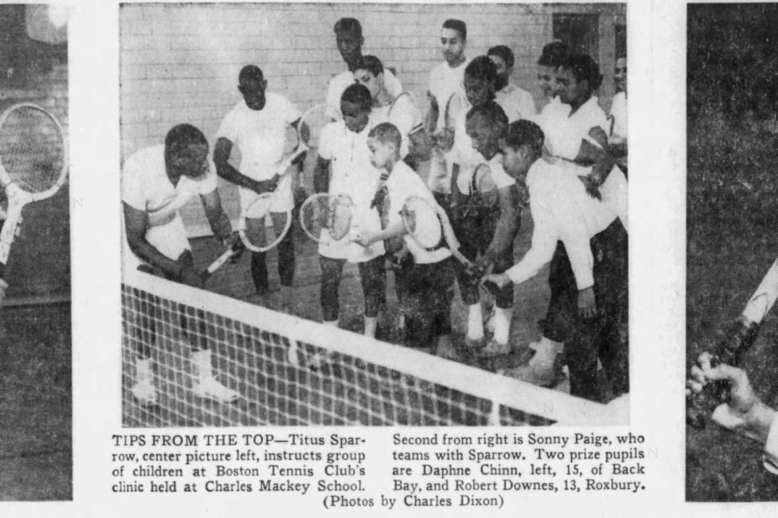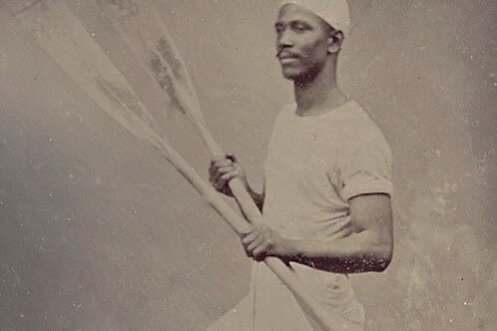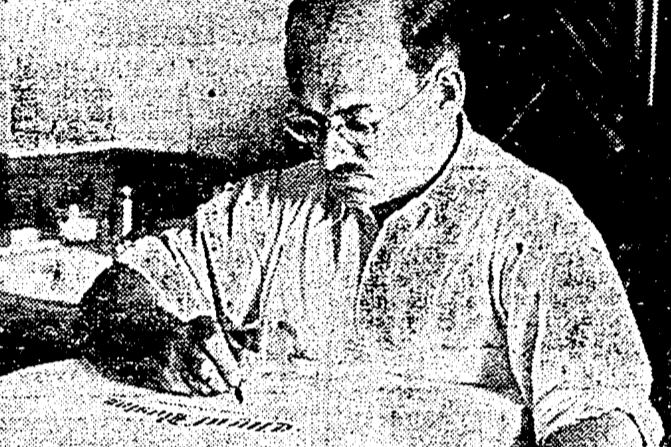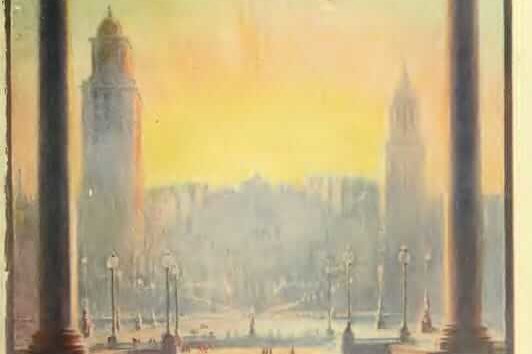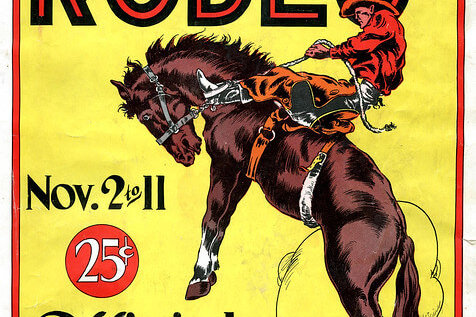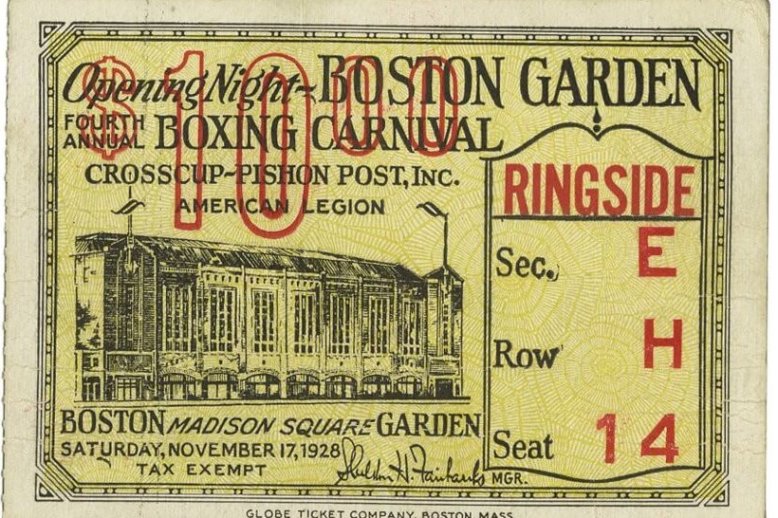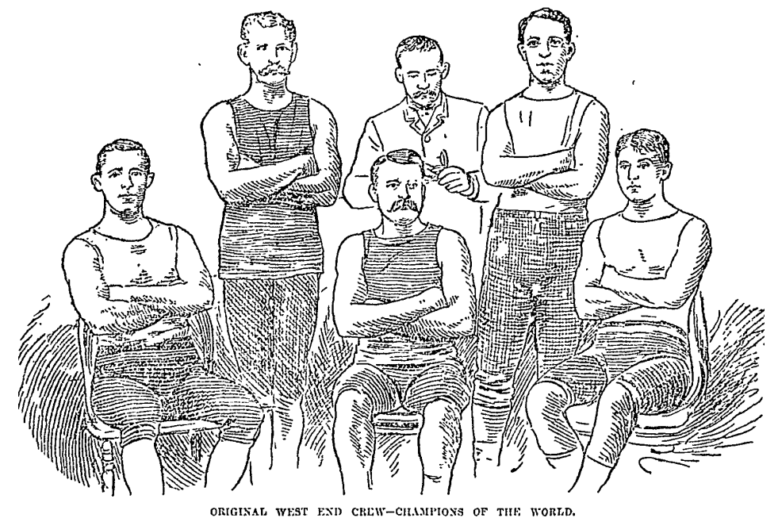Topic: Sports
Sports, sporting events, athletes
Titus Sparrow: The Tennis Ace who Brought Courts Back to Boston Renowned tennis player and Boston native, Titus Sparrow (1908-1974), recognized that a city owed its residents more than just roads and bridges. During a long career in which he taught hundreds of young tennis players, Sparrow advocated for public tennis courts for all neighborhoods.…
When professional rowing was the biggest sport going, Frenchy Johnson burst out of the West End to become the fastest oarsman in Boston, and among the first African-American athletes to achieve national recognition. And rowing wasn’t even his best sport.
In September 1886, an unofficial boxing match took place on Staniford Street between two young girls, Lizzie and Mollie. The bout involved a makeshift ring, drawn-up terms, a referee, and two-hundred young people in a crowd. When a police officer arrived, the fight quickly ended, but the event made front-page news, and linked the West End to a century-old tradition of women and girls’ boxing in 1700s Britain.
Inspired by his experiences at the West End House and Hale House, Joseph Rosen became one of the country’s leading engrossers, thanks in part to the kindness of James Jackson Storrow. He inscribed over 125,000 diplomas during his career, mainly for Harvard graduates, but he also produced honorary degrees for dignitaries such as the Roosevelt’s, Kennedy’s, and Winston Churchill. Despite his success, he never forgot the opportunities he received in the West End and found ways later in life to honor the West End House and its great benefactor.
The Boston-1915 Committee was formed in 1909 to improve conditions in Boston and to make it “the finest city in the world” by 1915. For many West Enders, Boston-1915 represented the promise of a brighter future, but none of them could have foreseen that some of the movement’s ideas would inspire city leaders to demolish the West End half a century later.
In 1931, just three years after its opening, the Boston Garden hosted a new sports phenomenon sweeping the East Coast; the indoor urban rodeos of the kind produced by entrepreneur and cattleman Col. W. T. Johnson. These rodeos in the West End gave eastern sports fans a rare opportunity to relish in the romanticized cowboy image of the bygone American frontier, while also enjoying skillful, and often dangerous, feats of athleticism. Fans of these rodeos were also witnesses to the emergence of professional female sports and the birth of an organized rodeo profession.
When the gates of the newly-built Boston Garden opened in November of 1928, ticket holders flooded in to witness a world championship match befitting a celebration surrounding the city’s new sports venue. Local boxers from Boston also had the honor of appearing that night, including a teenage amateur champ from the West End named Arthur “Hy” Diamond. Diamond was just one representative of a West End sporting culture whose fame spread far beyond the confines of this small, immigrant neighborhood.
James Butler (1845-1921) was a famous rower who lived most of his life in the West End after his family came to the US from Ireland. He was instrumental in founding the West End Boat Club on the Charles River in 1865, and won many races with his brother, Thomas Butler.


